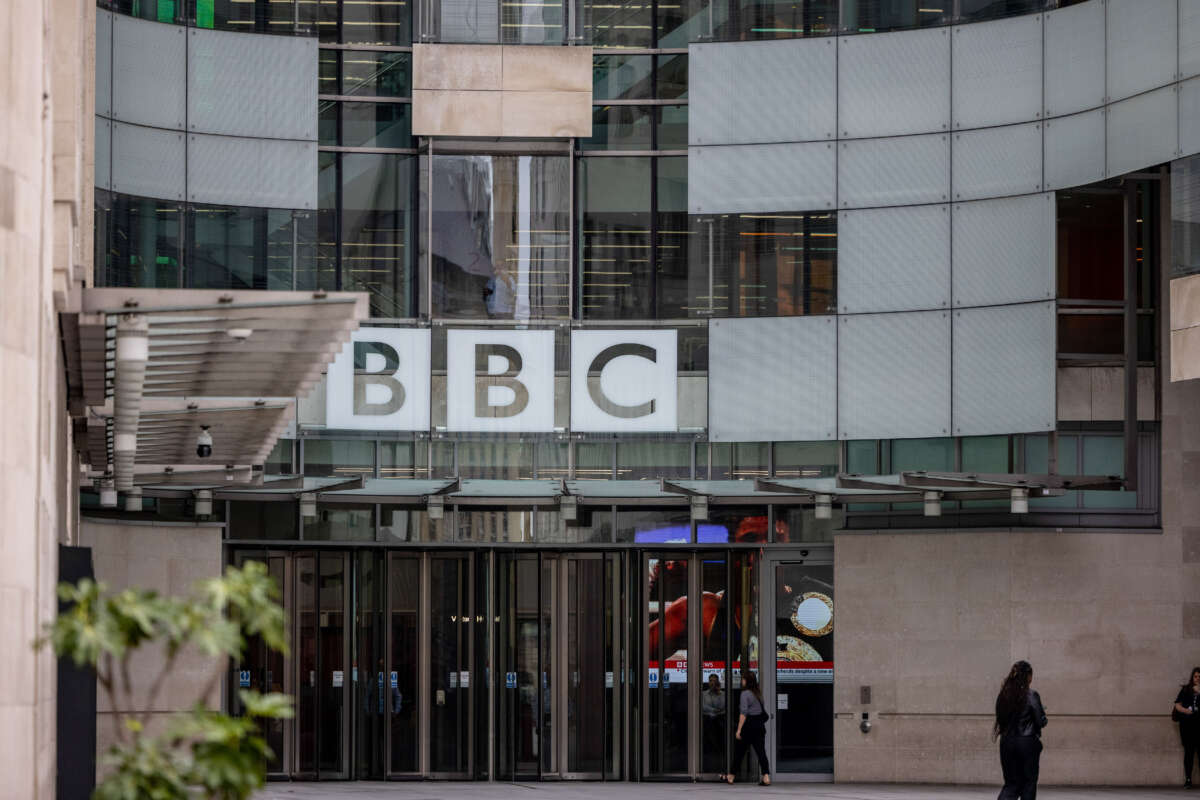BBC News Arabic has taken six of their own reporters off air for liking or publishing pro-Palestine posts on social media.
“As Palestinians lose their lives, Western media loses the last shreds of its credibility,” independent journalist Alan MacLeod said on social media in response to the news.
The suspension of these BBC journalists follows the removal of three Muslim anchors from the airwaves by MSNBC, an order by Axel Springer that its staff downplay Palestinian deaths in news coverage, and the Israeli military’s targeting and killing of Palestinian journalists.
“There is a very absurd media push for really dismissing and invisibilizing any Palestinian sympathy,” Ahlam Muhtaseb, a professor of media studies at California State University, San Bernardino, told The Intercept. “The one-sided Israeli victimhood narrative demands buy-in from media institutions and the U.S. government itself.”
Last week, a member of the BBC News Arabic team in Tel Aviv was stopped and assaulted by Israeli police despite being in a vehicle marked as media. “Journalists must be able to report on the conflict in Israel-Gaza freely,” the BBC said.
Despite the BBC’s call for journalist safety on the ground, there are growing concerns about the safety of the suspended BBC journalists after they were doxxed by the Telegraph, a right-wing British newspaper.
The broadcaster is also facing criticism for its coverage of Israel’s war on Palestine, which human rights advocates say has consistently dehumanized Palestinians and ultimately served to manufacture public consent for the Israeli occupation. On Saturday, members of Palestine Action threw red paint on the BBC’s headquarters to protest its coverage of the genocide of Palestinians, accusing the broadcaster of having “blood on its hands.”
“Palestine Action left a message overnight for the BBC: spreading the occupation’s lies and manufacturing consent for Israel’s war crimes means that you have Palestinian blood on your hands #ShutBBCDown,” the group said on X.
The BBC was the starting point for a Palestinian solidarity rally last weekend. The broadcaster cynically portrayed the London rally and other pro-Palestine protests across the country as “backing Hamas.” After receiving multiple complaints, the BBC was forced to apologize.
“We spoke about several demonstrations across Britain during which people voiced their backing for Hamas,” Maryam Moshiri, chief presenter at BBC News, said on social media. “We accept this was poorly phrased and was a misleading description of the demonstrations.”
Listeners have condemned the BBC for spreading pro-Israel propaganda.
“I’ve made a formal complaint to BBC News for this misrepresentation and propaganda and I’d suggest others to do likewise,” one social media user said in response to Moshiri’s apology. “The suggestion that those that support an end to the siege of Gaza are pro-Hamas is way beyond acceptable.”
Many human rights advocates have pointed out that corporate media’s emphasis on whether Palestinian advocates condemn Hamas — rather than on their demands for an end to Israel’s violent settler-colonialism — is “a strategic move designed to delegitimize the broader struggle for freedom in Palestine.”
Meanwhile, Israeli defense forces have been targeting and killing journalists at an unprecedented rate. Israeli forces have killed at least 21 journalists since the war began on October 7, according to the Committee to Protect Journalists (CPJ).
“CPJ emphasizes that journalists are civilians doing important work during times of crisis and must not be targeted by warring parties,” said Sherif Mansour, CPJ’s Middle East and North Africa program coordinator. “Journalists across the region are making great sacrifices to cover this heartbreaking conflict. All parties must take steps to ensure their safety.”
Our most important fundraising appeal of the year
December is the most critical time of year for Truthout, because our nonprofit news is funded almost entirely by individual donations from readers like you. So before you navigate away, we ask that you take just a second to support Truthout with a tax-deductible donation.
This year is a little different. We are up against a far-reaching, wide-scale attack on press freedom coming from the Trump administration. 2025 was a year of frightening censorship, news industry corporate consolidation, and worsening financial conditions for progressive nonprofits across the board.
We can only resist Trump’s agenda by cultivating a strong base of support. The right-wing mediasphere is funded comfortably by billionaire owners and venture capitalist philanthropists. At Truthout, we have you.
We’ve set an ambitious target for our year-end campaign — a goal of $250,000 to keep up our fight against authoritarianism in 2026. Please take a meaningful action in this fight: make a one-time or monthly donation to Truthout before December 31. If you have the means, please dig deep.
